Franco Maresco
Рождение : 1958-05-05, Palermo, Sicily, Italy

Director
Maresco returns to speak not only about Jazz, but about the double thread that connects jazz with Italy, or more precisely, with Sicily.

Director
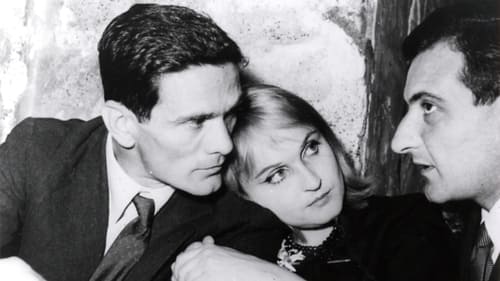
Director
Franco Maresco celebrates the heritage of Pier Paolo Pasolini on the 99th anniversary of his birth through a series of exchanges with renowned intellectuals which were involved or influenced by his works and ideas.
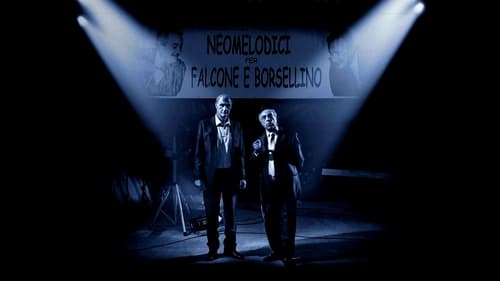
Self - Filmmaker / Narrator (voice)
Palermo, Sicily, Italy, 2017. Twenty-five years after the murders of anti-mafia judges Giovanni Falcone, on May 23, 1992, and Paolo Borsellino, on July 19, 1992; and on the occasion of the tributes held in memory of both heroes, skeptical photographer Letizia Battaglia, chronicler of their titanic combat, criticizes the opportunism of shady characters who, like businessman Ciccio Mira, profit from the commemoration of both tragedies.

Idea
Palermo, Sicily, Italy, 2017. Twenty-five years after the murders of anti-mafia judges Giovanni Falcone, on May 23, 1992, and Paolo Borsellino, on July 19, 1992; and on the occasion of the tributes held in memory of both heroes, skeptical photographer Letizia Battaglia, chronicler of their titanic combat, criticizes the opportunism of shady characters who, like businessman Ciccio Mira, profit from the commemoration of both tragedies.

Writer
Palermo, Sicily, Italy, 2017. Twenty-five years after the murders of anti-mafia judges Giovanni Falcone, on May 23, 1992, and Paolo Borsellino, on July 19, 1992; and on the occasion of the tributes held in memory of both heroes, skeptical photographer Letizia Battaglia, chronicler of their titanic combat, criticizes the opportunism of shady characters who, like businessman Ciccio Mira, profit from the commemoration of both tragedies.

Director
Palermo, Sicily, Italy, 2017. Twenty-five years after the murders of anti-mafia judges Giovanni Falcone, on May 23, 1992, and Paolo Borsellino, on July 19, 1992; and on the occasion of the tributes held in memory of both heroes, skeptical photographer Letizia Battaglia, chronicler of their titanic combat, criticizes the opportunism of shady characters who, like businessman Ciccio Mira, profit from the commemoration of both tragedies.

Director

Screenplay
Franco scaldati - died in 2013 - was one of the most important autors of italian theatre plays, Maresco describes his role in the cultural and social field. Through his opera we can observe Italy from another point of view.

Director
Franco scaldati - died in 2013 - was one of the most important autors of italian theatre plays, Maresco describes his role in the cultural and social field. Through his opera we can observe Italy from another point of view.

Director

Editor
This film tells the story of three defeats: Berlusconi’s political and human defeat in his “twilight”, the one of Ciccio Mirra, Berlusconi’s unconditional supporter, deeply rooted in an ancient culture that dies hard, and the director’s artistic defeat in an Italy that recognised itself in this “Berlusconian culture” for a long time, and probably still does.

Screenplay
This film tells the story of three defeats: Berlusconi’s political and human defeat in his “twilight”, the one of Ciccio Mirra, Berlusconi’s unconditional supporter, deeply rooted in an ancient culture that dies hard, and the director’s artistic defeat in an Italy that recognised itself in this “Berlusconian culture” for a long time, and probably still does.

Director
This film tells the story of three defeats: Berlusconi’s political and human defeat in his “twilight”, the one of Ciccio Mirra, Berlusconi’s unconditional supporter, deeply rooted in an ancient culture that dies hard, and the director’s artistic defeat in an Italy that recognised itself in this “Berlusconian culture” for a long time, and probably still does.

Director
В этом киноальманахе самые известные и самые молодые фестивальные режиссёры мира объединились, чтобы отпраздновать семидесятилетний рубеж одного из самых влиятельных фестивалей кино. Каждому режиссёру в рамках полутора минут была дана возможность изобразить свой неповторимый стиль на экране и по-своему признаться в любви кинематографу.

Writer
Italian documentary

Director
Italian documentary

Director

Director
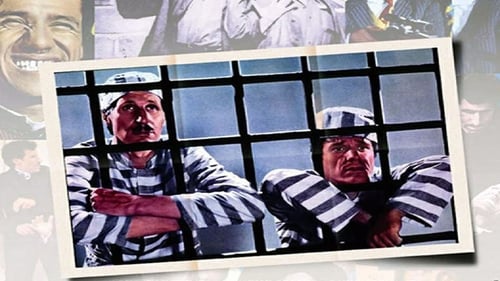
Editor

Writer

Director
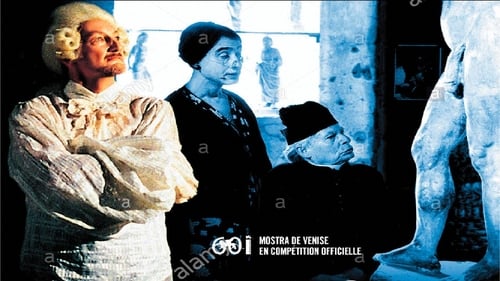
Screenplay
Сицилия, конец 1940-х годов. Два брата-скульптора решают открыть свою кинокомпанию. Один из местных богачей соглашается вложить деньги в производство картины «Возвращение Калиостро». И непрофессиональные режиссеры берутся за дело.

Director
Сицилия, конец 1940-х годов. Два брата-скульптора решают открыть свою кинокомпанию. Один из местных богачей соглашается вложить деньги в производство картины «Возвращение Калиостро». И непрофессиональные режиссеры берутся за дело.

Director

Editor

Writer

Director

Director
In relation to some of Pasolini's visits to Palermo for this last film, in 2000 Ciprì and Maresco shot Arruso, which begins with a phrase by Pasolini ("I banished the word hope from my vocabulary") and consists of imaginary interviews with some local characters who are presumed to have had homosexual relationships with the director. The two record the testimonies, sometimes affectionate others less, of those who had the opportunity to meet him and know the trends on the occasion of that trip.

Editor
A visit to the Rotoli cemetery in Palermo, while film director Carmelo Bene reads a fragment of Antonio Pizzuto's book "Signorina Rosina".

Producer
A visit to the Rotoli cemetery in Palermo, while film director Carmelo Bene reads a fragment of Antonio Pizzuto's book "Signorina Rosina".

Director
A visit to the Rotoli cemetery in Palermo, while film director Carmelo Bene reads a fragment of Antonio Pizzuto's book "Signorina Rosina".

Self (voice) (uncredited)
Ciprì and Maresco's delicious documentary portrays Sicilian super-agent Enzo Castagna, a man with some 20,000 extras on his books, who has worked with the likes of Loren, Pasolini, Rosi, Coppola and Cimino (indeed, virtually anyone who's ever chosen to film in Palermo). It's typically weird, witty and wonderful, partly due to its subject, a self-styled 'little big man' who consents to be described as 'almighty' and 'the greatest contributor to Italian cinema in the last 35 years'. The local favourite has also done time for bribery, but refuses to comment on Cosa Nostra. The film is as astonishing as its subject. Shot in luscious b/w, it's driven forward by an offscreen interrogator who alternates between ludicrously hyperbolic flattery and forthright questions about corruption and crime. It also serves as a study of the way ethics get abandoned in the unending pursuit of fame, wealth and self-esteem.

Writer
Ciprì and Maresco's delicious documentary portrays Sicilian super-agent Enzo Castagna, a man with some 20,000 extras on his books, who has worked with the likes of Loren, Pasolini, Rosi, Coppola and Cimino (indeed, virtually anyone who's ever chosen to film in Palermo). It's typically weird, witty and wonderful, partly due to its subject, a self-styled 'little big man' who consents to be described as 'almighty' and 'the greatest contributor to Italian cinema in the last 35 years'. The local favourite has also done time for bribery, but refuses to comment on Cosa Nostra. The film is as astonishing as its subject. Shot in luscious b/w, it's driven forward by an offscreen interrogator who alternates between ludicrously hyperbolic flattery and forthright questions about corruption and crime. It also serves as a study of the way ethics get abandoned in the unending pursuit of fame, wealth and self-esteem.

Director
Ciprì and Maresco's delicious documentary portrays Sicilian super-agent Enzo Castagna, a man with some 20,000 extras on his books, who has worked with the likes of Loren, Pasolini, Rosi, Coppola and Cimino (indeed, virtually anyone who's ever chosen to film in Palermo). It's typically weird, witty and wonderful, partly due to its subject, a self-styled 'little big man' who consents to be described as 'almighty' and 'the greatest contributor to Italian cinema in the last 35 years'. The local favourite has also done time for bribery, but refuses to comment on Cosa Nostra. The film is as astonishing as its subject. Shot in luscious b/w, it's driven forward by an offscreen interrogator who alternates between ludicrously hyperbolic flattery and forthright questions about corruption and crime. It also serves as a study of the way ethics get abandoned in the unending pursuit of fame, wealth and self-esteem.
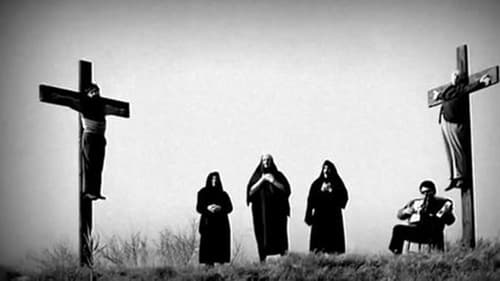
Editor
The film has three stories. First is about local village idiot Paletta, who can not afford the services of a whore and so steals a locket from a holy shrine belonging to local mafia don. Second shows the story of betrayal of Pitrinu (who's dead now) by his lover Fefe. Final episode is about lowlife Lazarus. He is killed by mob boss Toto, but raised from the dead by a local messiah, who is also known as Toto (and is played by same actor).

Screenplay
The film has three stories. First is about local village idiot Paletta, who can not afford the services of a whore and so steals a locket from a holy shrine belonging to local mafia don. Second shows the story of betrayal of Pitrinu (who's dead now) by his lover Fefe. Final episode is about lowlife Lazarus. He is killed by mob boss Toto, but raised from the dead by a local messiah, who is also known as Toto (and is played by same actor).

Director
The film has three stories. First is about local village idiot Paletta, who can not afford the services of a whore and so steals a locket from a holy shrine belonging to local mafia don. Second shows the story of betrayal of Pitrinu (who's dead now) by his lover Fefe. Final episode is about lowlife Lazarus. He is killed by mob boss Toto, but raised from the dead by a local messiah, who is also known as Toto (and is played by same actor).

Director
Ciprì and Maresco are fierce critics of post-modern society. They bear witness to the colonization of the imagination attributable in part to the omnipresence of mass communications and the globalization of neo-capitalist values. Their works, scatological in the literal but especially in the metaphorical and etiological sense, denounce social institutions and practices thought to be at the root of injustice, inequality and criminality.

Director

Self

Director

Director
Daniele Ciprì short film

Director
The Italian duo Ciprì & Maresco, known to be cynical deconstructionists, weave a fascinating film around memories of a decadent Sicily. Ruins, memories of ruins - memories are ruins. This thoroughly surrealist piece unfolds like a dream, with no clear direction but the haunting feeling of familiarity and the ready acceptance of otherness as oneness.
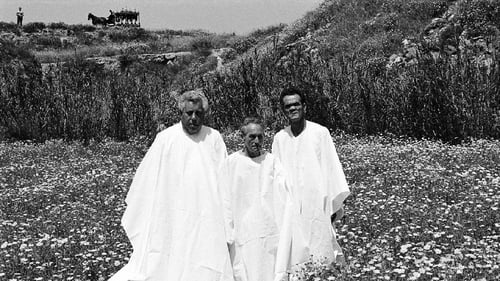
Director
The best italian film of the 90's, the most extreme and radical work since SALO', a ruthless representation, in a surreal-metaphorical key, of a civilization condemned to worshipping its own blindness. The two sicilian directors use a language free from compromise and from the traditional storyline rules: the movie is photographed in a sharp and very contrasting black & white, with no beautiful pimp music, and lacks a logical story. There are no women (the ones we see are actually men), and the language is strict sicilian dialect. The directing style is characterized by long fixed shots on a post-atomic world, which is really present-day Palermo, inhabited by fat people in socks and underwear who burp and fart while roaming around smelly alleyways and waste dumps.

Director
An anthology of video short films directed by Daniele Ciprì and Franco Maresco. interviews conducted by the two directors with alienated, crazy and squalid characters of a desolate Sicily.

Writer
Short 35mm experimental film featuring Sam Fuller.

Director
Short 35mm experimental film featuring Sam Fuller.


























